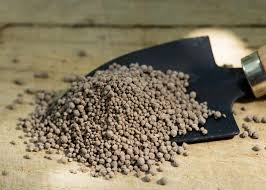
Oca . 02, 2025 13:12 Back to list
phosphate fertilizer uses
The Role of Phosphate Fertilizers in Modern Agriculture
Phosphate fertilizers play a crucial role in modern agriculture, significantly impacting crop production and soil health. As one of the three essential macronutrients for plant growth—alongside nitrogen and potassium—phosphorus is vital for various physiological processes, including energy transfer, root development, and photosynthesis. The increasing global demand for food, driven by population growth and changing dietary preferences, has underscored the importance of phosphate fertilizers in enhancing agricultural productivity.
Phosphate fertilizers are primarily derived from phosphate rock, which undergoes chemical processing to produce different forms of fertilizers suitable for various agricultural applications. The most commonly used forms include monoammonium phosphate (MAP), diammonium phosphate (DAP), and single superphosphate (SSP), each contributing unique benefits to crops. MAP and DAP provide both phosphorus and nitrogen, making them popular choices for early-season applications when plants require nutrient availability shortly after planting. SSP, on the other hand, is often employed for its slow-release properties, providing a steady supply of phosphorus over time.
The benefits of phosphate fertilizers extend beyond mere nutrient supply. They also play a pivotal role in improving soil structure and fertility. Phosphorus enhances microbial activity in the soil, fostering a healthy root environment where plants can thrive. Additionally, phosphate fertilizers can help alleviate nutrient deficiencies in soils that are inherently low in phosphorus, promoting more robust and resilient plant growth.
phosphate fertilizer uses

Despite their importance, the application of phosphate fertilizers comes with its set of challenges. One of the most significant concerns is the environmental impact associated with their use. Phosphate runoff from agricultural fields can lead to water pollution, causing eutrophication in aquatic ecosystems. This phenomenon results in algal blooms that deplete oxygen in water bodies, harming fish and other aquatic life. As a result, sustainable practices and precision agriculture techniques are being adopted to minimize fertilizer use and reduce environmental risks.
To promote the responsible use of phosphate fertilizers, farmers are increasingly turning to soil testing and analysis to determine the specific nutrient needs of their crops. By adopting a targeted approach to fertilization, farmers can optimize their fertilizer applications, ensuring that the right amount of phosphorus is supplied at the right time. Additionally, integrated nutrient management (INM) strategies, which combine organic and inorganic fertilizers, are gaining traction. This approach not only enhances nutrient efficiency but also improves soil health over the long term.
Furthermore, research into alternative sources of phosphorus is intensifying. Bio-based fertilizers, such as compost and manure, can supplement synthetic phosphate inputs, leading to a more sustainable nutrient management system. Additionally, innovations in phosphorus recovery technologies, which aim to extract phosphorus from wastewater and agricultural runoff, offer promising avenues for reducing the reliance on conventional phosphate fertilizers.
In conclusion, phosphate fertilizers are indispensable to the success of modern agriculture. They provide essential nutrients that foster plant growth and enhance soil fertility. However, the environmental challenges associated with their use necessitate a shift towards more sustainable practices. By embracing precision agriculture and exploring alternative nutrient sources, the agricultural sector can continue to harness the benefits of phosphate fertilizers while minimizing their ecological footprint. As the global population continues to grow, finding a balanced approach to nutrient management will be critical in ensuring food security for future generations.
-
10 10 10 Fertilizer Organic—Balanced NPK for All Plants
NewsJul.30,2025
-
Premium 10 10 10 Fertilizer Organic for Balanced Plant Growth
NewsJul.29,2025
-
Premium 10 10 10 Fertilizer Organic for Balanced Plant Growth
NewsJul.29,2025
-
Premium 10 10 10 Fertilizer Organic for Balanced Plant Growth
NewsJul.29,2025
-
50 Pound Bags of 13-13-13 Fertilizer for All Plants – Bulk & Organic Options
NewsJul.28,2025
-
High-Efficiency 15-30-15 Granular Fertilizer for Healthy Crops
NewsJul.28,2025
